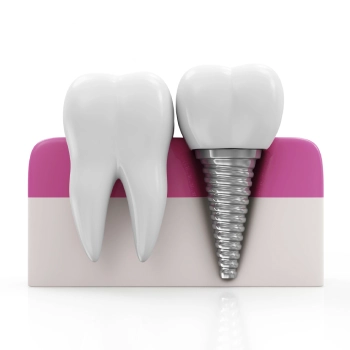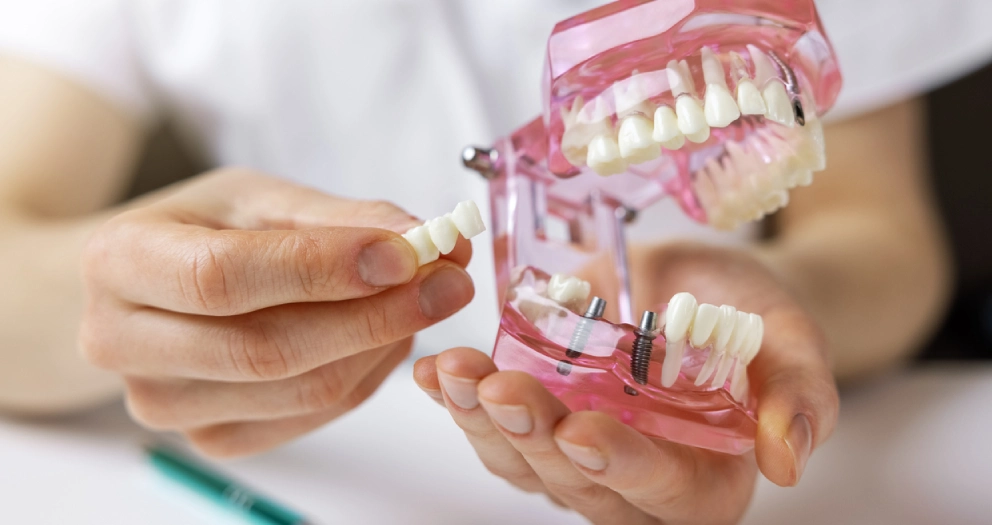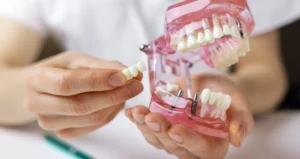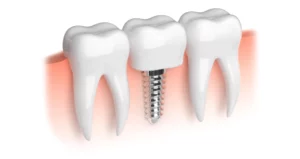Dental implant surgery can significantly enhance your smile and restore oral functionality. However, like any surgical intervention, it involves a recovery period during which your body adjusts to the implants and heals from the procedure. Understanding what to expect during this recovery phase is essential for managing expectations and ensuring a smooth healing process. So, how long does it take to recover from dental implant surgery? Let’s explore that.
Understanding Dental Implant Surgery
Dental implants are artificial tooth roots made from titanium. They’re surgically implanted into the jawbone to provide support for replacement teeth such as crowns, bridges, or dentures. The procedure typically involves several steps:
Initial Consultation:
Your dentist or oral surgeon assesses your oral health, discusses treatment options, and devises a personalized plan to suit your needs.
Preparation:
If needed, any damaged teeth are removed, and additional procedures like bone grafting may be done to ensure there’s enough bone to support the implants.
Implant Placement:
The dental implants are placed into the jawbone surgically. This can be done in one go or in stages, depending on the complexity of your case.
Osseointegration:
Following implant placement, a vital process called osseointegration occurs. During this phase, the implants meld with the surrounding bone, forming a sturdy base for the replacement teeth.
Restoration:
Once osseointegration is successful, abutments are attached to the implants. Finally, custom-made artificial teeth (like crowns, bridges, or dentures) are fitted onto the abutments, restoring your smile’s appearance and function.
Factors Influencing Recovery Time
Several factors influence how long does it takes to recover from dental implant surgery:
Overall Health:
Your general health plays a significant role. Those in good health tend to bounce back faster than individuals with underlying health issues or weakened immune systems.
Bone Density:
Having enough bone density is crucial for successful implant placement and integration. If bone grafting is needed to enhance bone volume, it can lengthen the recovery period.
Number and Complexity of Implants:
The number of implants and the complexity of the procedure affect recovery time. More implants or intricate oral procedures may require a longer recovery period.
Patient Compliance:
Following your dentist’s post-operative instructions is key. This includes maintaining proper oral hygiene, adhering to dietary restrictions, and attending follow-up appointments. Patient compliance significantly impacts the speed and success of recovery.
Recovering from a dental implant surgery
So, how long does it take to recover from dental implant surgery? Recovering from dental implant surgery varies from person to person, as each case is unique. Factors like the number of implants placed, whether bone grafting was necessary, and the individual’s health play significant roles in determining the recovery time.
The type of surgical procedure performed also affects the recovery process and the level of discomfort experienced afterward. While some swelling and discomfort are common after surgery, most patients resume their daily activities soon enough, depending on the complexity of the procedure.
Simple Procedure:
A simple dental implant procedure involves replacing just one tooth without the need for any bone grafting. In such cases, the patient typically experiences minimal discomfort. While minor bruising and swelling may occur, the recovery process is generally straightforward. The dentist suggests the patient take it easy, gently brush the remaining teeth, and stick to soft foods for a few days.

Moderate Procedure:
A moderate dental implant procedure is a common occurrence for many patients. This involves replacing two or more teeth with new dental implants. After the surgery, patients can suffer some swelling, bruising, and discomfort, which is normal. Generally, the healing process takes about a week. After 7 to 10 days, patients can start reintroducing their regular diet, but it’s best to avoid tough foods like whole fruits and steaks until the entire process is complete.
Difficult Procedure:
For some patients, undergoing a challenging dental implant procedure can mean a longer road to recovery. If the surgery was tougher than usual or involved placing multiple new dental implants, it might take more time for the patient to heal fully. It’s recommended to stick to soft foods for about six weeks after the surgery to help with recovery. Similar to a moderate procedure, there might be additional discomfort, and it’s important to follow the doctor’s instructions carefully, especially regarding any prescribed medications.
How to help the healing process
Here are some simple ways to support your healing process after dental implant surgery:
Follow Your Dentist's Instructions:
Your dentist gives you specific guidance on how to care for your mouth after surgery. Make sure to follow these instructions closely, take any prescribed medications, and attend follow-up appointments.
Keep Your Mouth Clean:
Practice good dental hygiene by gently brushing your teeth and using a mouthwash recommended by your dentist. Avoid brushing the surgical area directly until it’s fully healed.
Eat Soft Foods:
Stick to a soft diet for a while after surgery to avoid irritating the surgical site. Choose foods like yogurt, mashed potatoes, and soups until you’re fully healed.
Stay Hydrated:
Drink plenty of water to help your body heal. Avoid sugary or acidic drinks that could irritate your mouth.
Avoid Smoking and Limit Alcohol:
Smoking slows down the healing process, so it’s best to avoid it altogether. Also, limit alcohol intake, as it can interfere with your body’s ability to heal.
Get Plenty of Rest:
Take it easy and get enough rest to support your body’s healing process. Avoid strenuous activities that could strain your mouth.
Manage Discomfort:
It’s okay to experience some discomfort, swelling, and bruising after surgery. Use pain medication as recommended by your dentist and apply ice packs to reduce swelling.
Attend Follow-Up Visits:
Make sure to go to all your follow-up appointments with your dentist. They’ll check on your progress and make sure your implants are healing properly.
Conclusion
The recovery time from dental implant surgery varies based on individual factors such as overall health, bone density, and the complexity of the procedure. While some may experience a swift recovery, others may require more time. However, patients can facilitate a smooth healing process by following post-operative instructions and practicing good oral hygiene.
If you’re considering dental implants, consult with our experts at Tamarack Hills Family Dentistry in Woodbury, MN, to learn more about your options and ensure a successful recovery. Contact us today to schedule a consultation. New Patients can call us at (651) 432-0975, while Current Patients can call at (651) 964-3747.
fAQ
How long does it take to recover from dental implant surgery?
Recovery time varies but typically ranges from a few days to several weeks, depending on factors like overall health and the complexity of the procedure.
Are there any tips for speeding up the recovery process?
Follow your dentist’s post-operative instructions, maintain good oral hygiene, eat soft foods, avoid smoking, and attend follow-up appointments for optimal recovery.
When can I expect to see the final results of my dental implant surgery?
While initial healing may occur within a few weeks, the complete integration of implants and restoration of full function may take several months. Patience is key to long-term success to see how long does it take to recover from dental implants surgery.



